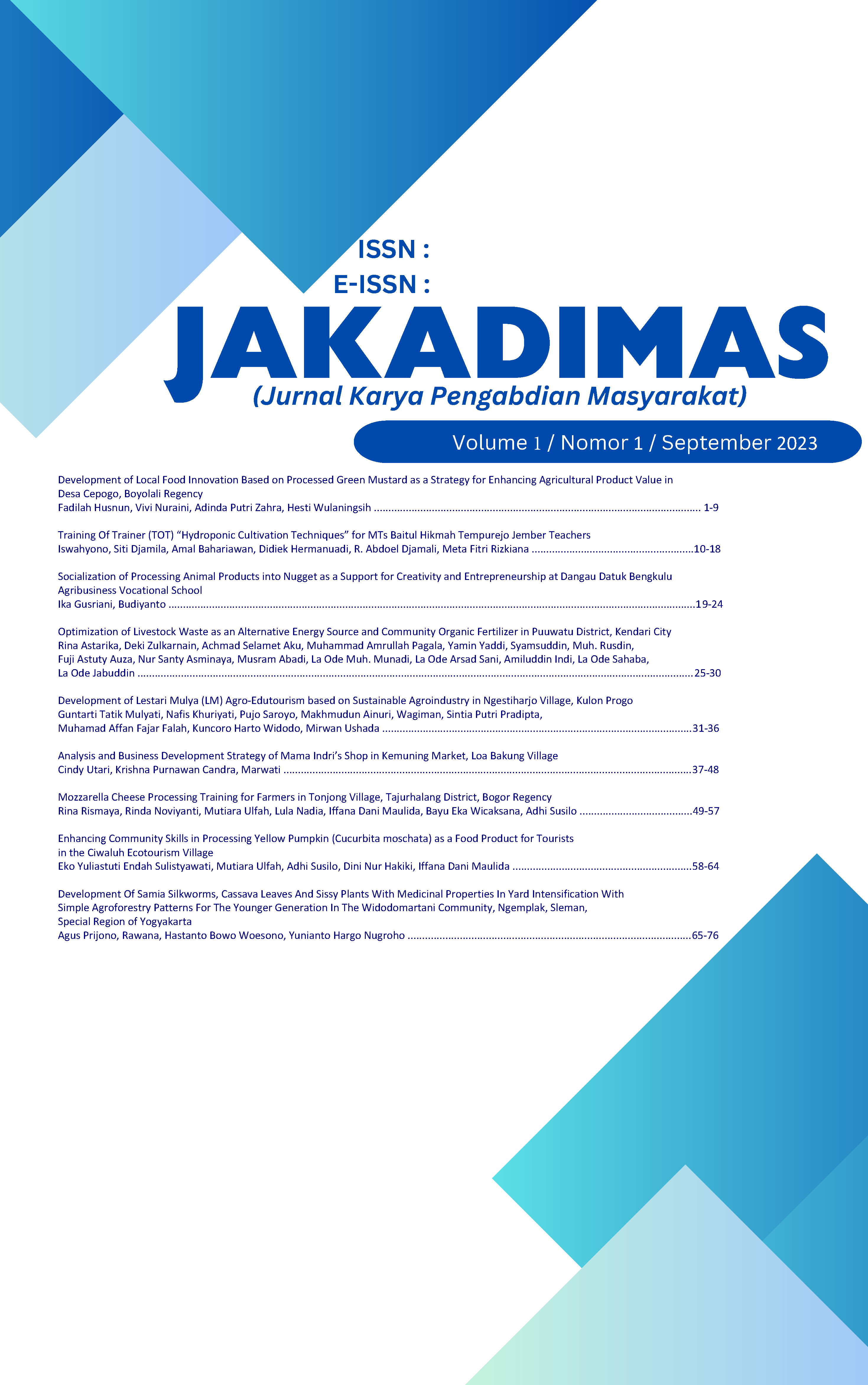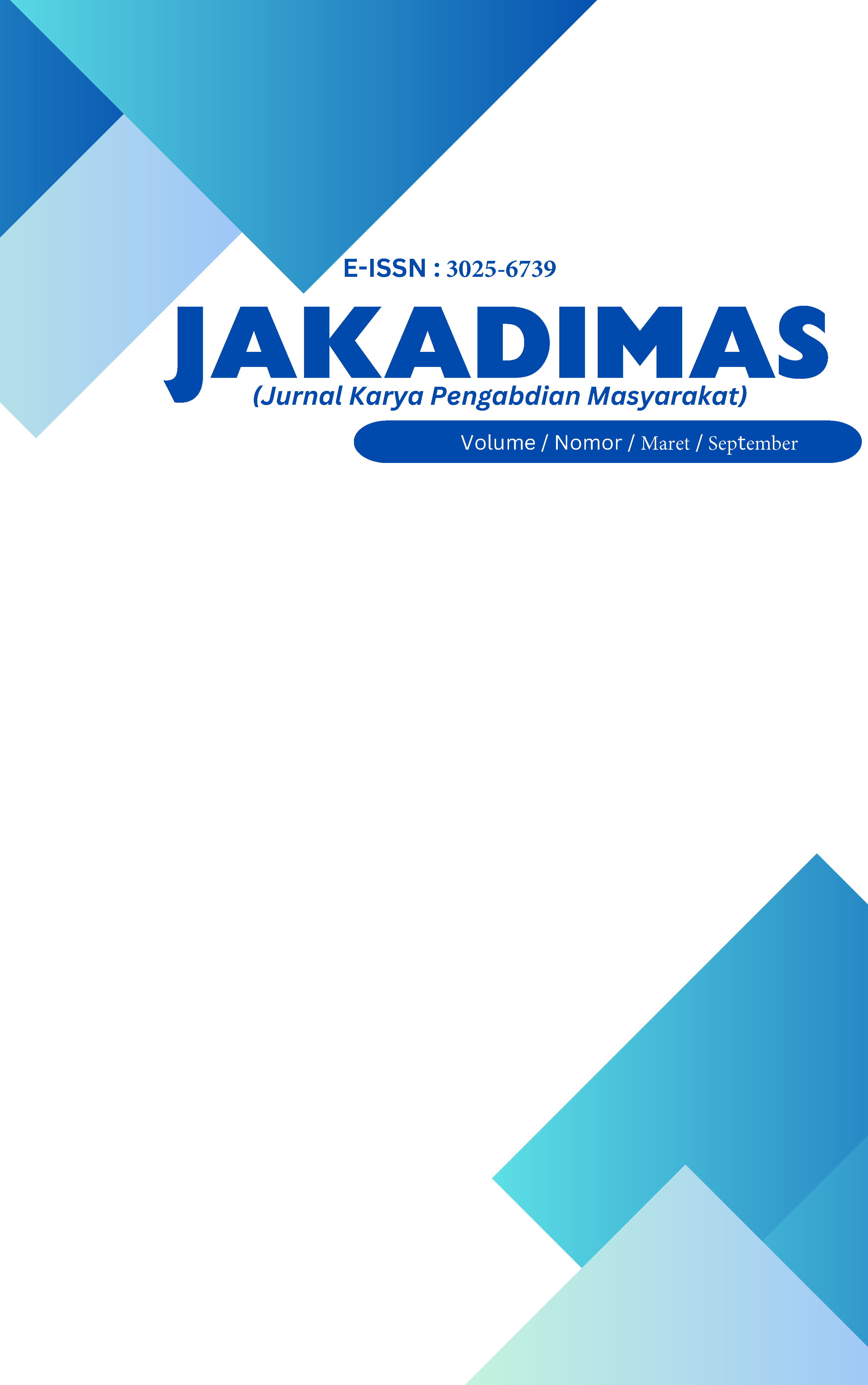Development of Local Food Innovation Based on Processed Green Mustard as a Strategy for Enhancing Agricultural Product Value in Desa Cepogo, Boyolali Regency
DOI:
https://doi.org/10.33061/jakadimas.v1i1.9485Keywords:
Green mustard, local food, food product innovation, product valueAbstract
Desa Cepogo in Boyolali Regency, Central Java, has rich and fertile agricultural potential. Its location at the foot of Mount Merapi and Merbabu results in fertile soil and abundant water, making it suitable for agricultural and livestock activities. One of the main commodities is green mustard plants. However, the occurrence of bountiful harvests in Desa Cepogo village affects the selling prices of various agricultural products, including green mustard plants. Therefore, a solution is needed to process green mustard into higher-value food products. The community service team from FATIPA UNISRI is assisting the local community, particularly the PKK (Family Welfare Movement) mothers, in training them on how to process green mustard into healthy green noodles and vegetable nuggets. The objective of this community service is to reduce the sale of raw agricultural products and instead transform them into finished goods. The training on processing green mustard into finished food products such as green noodles and vegetable nuggets is expected to provide a solution to the existing issues. The expected outcome of this community service is that the people of Desa Cepogo village will be able to process and sell food products made from green mustard at a high selling price, thereby improving overall well-being.
Downloads
Published
How to Cite
Issue
Section
License
Copyright (c) 2023 JAKADIMAS (Jurnal Karya Pengabdian Masyarakat)

This work is licensed under a Creative Commons Attribution-ShareAlike 4.0 International License.
Authors who publish with this journal agree to the following terms:
- Copyright on any article is retained by the author(s).
- The author grants the journal, right of first publication with the work simultaneously licensed under a Creative Commons Attribution License that allows others to share the work with an acknowledgment of the work’s authorship and initial publication in this journal.
- Authors are able to enter into separate, additional contractual arrangements for the non-exclusive distribution of the journal’s published version of the work (e.g., post it to an institutional repository or publish it in a book), with an acknowledgment of its initial publication in this journal.
- Authors are permitted and encouraged to post their work online (e.g., in institutional repositories or on their website) prior to and during the submission process, as it can lead to productive exchanges, as well as earlier and greater citation of published work.
- The article and any associated published material is distributed under the Creative Commons Attribution-ShareAlike 4.0 International License








